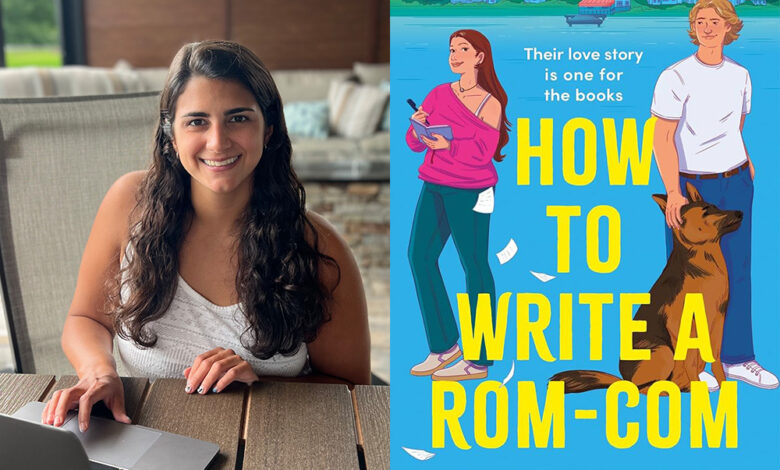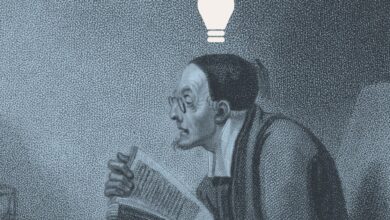How Cristina Wolf Went From An Editorial Assistant To A Debut Author

Guest post written by How To Write A Rom-Com author Cristina Wolf
Cristina Wolf wrote her first book in the third grade. It was an adventure book about her beagle, Abby, complete with hand-drawn illustrations and top-notch handwriting. Needless to say, writing and reading has been a passion of Cristina’s from the beginning. After graduating from Marist College with a double major in Business and English, Cristina pursued a career in the publishing industry while earning her Master of Science in Publishing from New York University. Cristina has experience working at literary agencies and as an editorial assistant at a publishing house. Finding life in NYC a bit different than she expected, Cristina returned to her native New Jersey where she earned her Master in Teaching from Monmouth University. She now shares her love of books with her students as a middle school English teacher.
About How To Write A Rom-Com (out August 5th 2025): Lucy Bowen has sworn off love. After too many failed relationships, she’s over the fairytale – but working at NYC’s biggest romance publisher, Heartwarming, means she can’t escape it. When the company’s bestselling author, Ruby Jones, threatens to leave due to dwindling sales (and a complete lack of inspiration), Lucy’s boss takes drastic action. Her new assignment? Go to a small lakeside town and find the spark for Ruby’s next big love story. Lucy expects picture-perfect charm, but the town – and its grumpy yet extremely attractive restaurant owner, Liam – have other ideas. He’s skeptical of city folk, and she has zero interest in falling for a small-town cliché. But rom-com rule number one? Love finds you when you least expect it…
It’s a truth universally acknowledged that a college graduate who loves reading must be in want of a career in publishing. And it’s another truth universally acknowledged that said career in publishing should be as glamorous as Carrie Bradshaw made it out to be.
Well, the real truth, unfortunately not as acknowledged, is that book publishing is not easy, not glamorous, and certainly not sexy in the city.
Hi, my name is Cristina, and I have experience working as an editorial and agency intern, an assistant to a literary agent, and an editorial assistant at a Big 5 publishing house. And this is my story of how I went from an editorial assistant with a Masters degree in publishing to a debut author.
Growing up, everyone around me seemed to know what they wanted to do.
An astronaut.
A swimmer.
A baseball player.
A teacher.
A doctor.
Me? I was pretty much average at everything. If I had to study for a chemistry test, I would, and immediately after taking said test, the information would leave my brain in a puff of smoke, because I didn’t care a bit about chemistry. I could recite US History facts like I was a contestant on Jeopardy! when I had to take my AP exam, but after that? Poof. Because I wasn’t passionate about it. About anything.
Except reading.
I was a voracious reader. (I mean, obviously, you already know the end of this story.) I was the kid reading Twilight under my desk while the teacher was talking. I was studying Greek mythology to keep up with Percy Jackson and imagining living in futuristic worlds with Katniss Everdeen. I loved to be immersed in a book, absorbed by words on a page that could take me to foreign countries and magical lands, without having to move from my desk. And they always say to make your career from your passions, but how could I make a career out of reading?
When I was in high school, the only place I felt comfortable in the building was in English class, and it wasn’t because the class was overflowing with nice people. It’s because I could latch on to every word Mary Shelley wrote about Frankenstein. I could peer edit my partner’s paper with a red pen that I wielded like a lightsaber. I could be passionate about something.
It was a book called The School Story by Andrew Clements that first taught me about book publishing. In it, the main character writes a book and publishes it under a pen name, because her mother is the editor that she sends it to. (Putting unrealistic depictions of actual industry workings aside here.) A job where I could read books all day, and maybe use a red pen to edit them? That was my image of publishing and I ran with it.
I went through college as a double major in Business and English. When I graduated, I immediately entered NYU’s specialty graduate program: Master of Science in Publishing, Digital and Print Media. Was it because I wanted to subject myself to two more years of lectures and essays? No. It’s because I knew the only way one can get a foot in the door of publishing is to either know someone (the OG nepo babies) or to insert oneself into the pool of applicants that publishing companies hire from, these selective graduate programs.
During the summer before I started at NYU, I got an internship at a literary agency. I had absolutely no idea what I was doing. The agent I worked for lived in London and I never actually met her. I read queries from her inbox and forwarded ones to her that I thought had promise. I had the power to crush someone’s dreams with the send of an email, and the same power to give them hope—it was all up to me. I requested partial manuscripts, helped to draft contracts, and went to the post office…a lot.
The summer after my first year at NYU, that agent took me on as her assistant…for eight hours a week. The agency couldn’t afford to pay me any more than that. I was living in a 400 square foot studio in Manhattan on an eight hour a week salary. It was a joke.
That summer, Colleen Hoover was going to be at Book Con—a convention held at the Javits Center for publishers, agencies, authors, and fans. I had been a super fan of Colleen’s since her first book, Slammed came out in 2012. I am an OG fan and I will defend that title until my dying day.
Anyway, Colleen would be there, and NYU was looking for volunteers to work the event.
It was a sweaty affair, Colleen cancelled, but I was able to meet some other celebrity authors and got a ton of free books. Most importantly, I landed my next job.
On one day of the convention, there was a galley drop for Jamie Maguire’s new book, From Here to You. I was a huge Beautiful Disaster fan. I also just so happened to see that the company that was publishing her new release had an opening at their romance imprint.
I networked the shit out of that opportunity.
I went from an eight hour a week assistant to a full-time editorial assistant at a Big 5 publishing house. I had a desk. A computer. A laptop. A company credit card. Access to the WB Mason account. A cubicle full of books. It was my dream.
Or was it?
Sure, I wasn’t making minimum wage at eight hours a week, but instead, I was making a $35,000 base salary in Manhattan. I could barely afford to buy a pretzel on the corner, let alone support myself.
But I was working with books! I got to read. All. The. Books! This was going to be great!
Except, my days were filled with emails, sales reports, tip sheets, marketing meetings, art meetings, more emails, agent queries…
My only reading consisted of manuscripts from authors on my boss’ list, or submissions from agents that they didn’t have time to read. And little else.
Because what the glamorous truth universally acknowledged doesn’t tell you about publishing is that very, very little of it is about reading. So if you love to read and read and read, like that little middle schooler staying up too late to finish Breaking Dawn, publishing may not be for you.
My favorite part of the job was working with authors. Reading the first versions of their manuscript. Marking up their documents with track changes. Conferring with my boss on editorial ideas and drafting editorial notes. But that was about 5% of my job.
Otherwise, I mostly just made a lot of copies and updated metadata. If you don’t know what metadata is and want to read a Wikipedia page that will lull you to sleep, Google it.
I loved when my name was in the Acknowledgements section of a book, or when I got an email from an author complimenting the editorial notes I sent that my boss took credit for. I was happy with that part, I was. But it was only 5%.
And the rest of the 95% of the work was…tough, not rewarding? I’m not sure what the word is, exactly. I got to work with authors, see behind the curtain into the magic of publishing, but was my passion for reading being satiated when I never had any time to read what I wanted to read?
There were a lot of factors that contributed to my exit from publishing. Manhattan was a big one—the thing about publishing is that anyone outside of a ten block radius surrounding Bryant Park doesn’t actually know it exists. Because it really doesn’t exist anywhere else in the country. But within those ten blocks, it’s cutthroat. That was another reason, knowing that I was working at a position that some young up and comer could take tomorrow, and my superiors wouldn’t even bat an eye. And it was the feeling that this universal assumption, this idea that book publishing would fulfill my love of language and editing, that was so…disappointing.
Publishing is hard. There is so much negativity and rejection that it’s hard to remember the positives of it. But there were positives. The first email I got from Jamie McGuire when I fangirled so hard I almost fell out of my chair. My name in the acknowledgements of Abby Jimenez’s first book, you know, the Abby who is now a #1 New York Times Bestselling author. Speaking of, the moment on Tuesday afternoons when the bestseller lists are posted and I saw the name of a book I worked on. The take shelf. Enough said.
Publishing, as an editor at least, wasn’t for me. But it did give me the experience to know exactly what I do want to do with my life. And the fact is I want to be the one writing the books, rather than orchestrating their production.
Publishing is hard. Being an author is hard. Sometimes it feels like a dream that is so unrealistic that I can’t believe I ever had the audacity to consider it for myself. But now I’m here. I get to spend a whole book making jokes about my time spent in publishing, and the life choices it forced me to make.
Book publishing isn’t evil. It makes dreams come true. But as with everything, it has its flaws. And the fact is, now, as an author, I get to be involved in everything I loved about the industry—writing, editing, meeting authors, sharing a love for books—and for that, I am eternally grateful.
Source link


